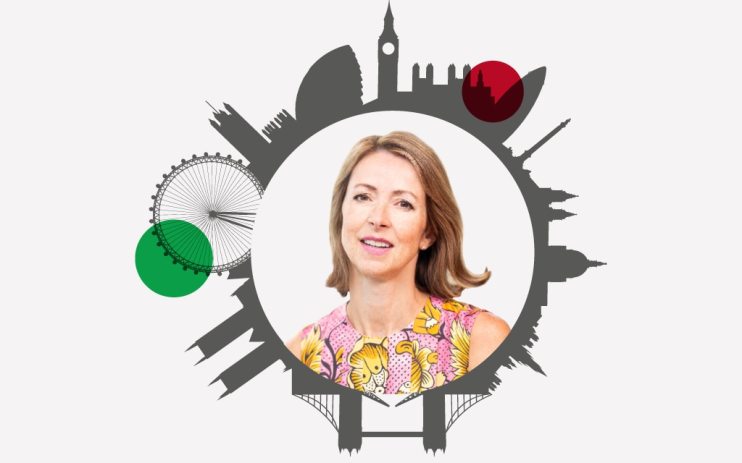Baroness Helena Morrissey on the skills professionals need to thrive in a post-pandemic world

Something which you can always rely on in the City is constant change. However, the changes born out of necessity over the last year or so have left many of us feeling disconcerted, admits Baroness Helena Morrissey.
“In some ways [change] is a good thing,” said Helena. “It allows us to get used to adapting, learning, and moving on.
“But there are some things that never change, and one of them is leadership.”
Although Helena’s career history includes several leadership roles at many of the world’s best-known investment management companies, she believes the concept of a leader transcends a job title.
“Leading is about how you behave and the attitude you bring to what you do. I think you can lead from wherever you are in a team, even if you are the most junior member.”
Never waste a good crisis
Regardless of your position in the hierarchy of an organisation, it is important to identify the correct blend of skills needed to be an effective leader. Being able to evolve in the face of unpredictable circumstances has arguably never been more vital than over the course of the COVID-19 pandemic.
“Only 5% of the workforce were working remotely before March 2020,” said Helena.
The sudden jolt out of the office to the new normal of working from home a year and a half ago, Helena said, has led to many feeling that they are unable to switch off and are effectively living at work.
“We’ve lost perspective. Working around the clock, without breaks and without exercise and fresh air is obviously bad for your mental health.
“I think it is incumbent on all of us now to start to consider the lessons learned from doing things differently, what are the new skills we need and what it means for your career and the way you do your job.
“All these things are now up for grabs.”
A new skillset
During her more than 30 years working in the City, Helena has never before seen a more fruitful opportunity to make positive and dramatic changes to the status quo of working life.
Helena has first-hand experience of a crisis producing opportunities for positive change through her work with the 30% Club – a campaign group she founded in 2010 to take action to increase gender diversity on boards and senior management teams.
In 2010, less than 10% of board seats were held by women. That number has now massively increased to around 34%, but the catalyst for this shift, Helena said, was the global financial crisis.
“When we had the financial crisis, all bets were off,” said Helena.
“At that point, nobody could claim that the boards of banks were set up effectively.”
With this realisation came the obvious question: What needs to change?
Along with the many improvements in corporate governance since then, Helena explained, there also came the examination of the effects of having so many leadership positions occupied by men from similar social and educational backgrounds, and the dangerous groupthink that this led to.
Through her work with various company Chairs to help identify women who would bring a fresh perspective and valuable insights to their board setup, Helena came to realise the importance of ‘soft skills’ in working to find the right solutions.
It is these ‘soft skills’ that Helena believes will be incredibly valuable in the rapidly approaching post-Covid landscape CAs will be operating in.
Within this new work environment, technical expertise is a given. This is not to diminish the achievement of obtaining these skills and the importance of continued learning, rather that there is now an opportunity to display an adept ability to make sound judgements and to communicate them well.
Helena said: “The difference between having a good career and a great career will be your resilience, the way you make decisions involving others, thinking innovatively and being agile.
“We are shaping the future, not replicating the past.”
Future proof your career
Helena made it clear that there are actions that can be taken by individuals to help put them on a positive path in their career journey.
“I want to encourage you to be open and contribute your ideas, don’t wait for other people to tell you what to do.”
Helena also believes that the importance of approaching complex problems with a creative mindset and the courage to break out of the pre-prescribed ways of working that might be the norm will be invaluable. The openness to embrace experimentation, while listening to diverse views, including your own, will set an individual apart as someone who realises the value of listening and taking educated risks.
Being conscious of your own physical and mental wellbeing is also critical in Helena’s opinion.
“You can’t have a fantastic career while continuing to learn new skills if you are having a chaotic life and are unwell,” she said.
“You need to learn how to sustain your energy and realise the mechanisms that allow you to recharge.”
Helena’s final piece of advice is to have a mentor.
“None of us can operate for a long time as an island. I’ve learned that however much you prepare, there will be setbacks and you need sounding boards and allies who will be there for you and encourage you to pick yourself up and use the experience as a springboard.”